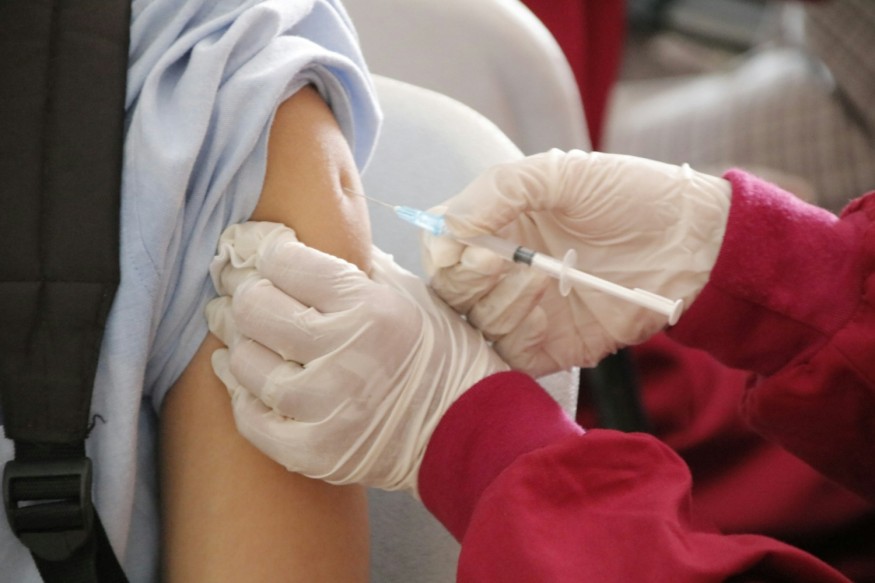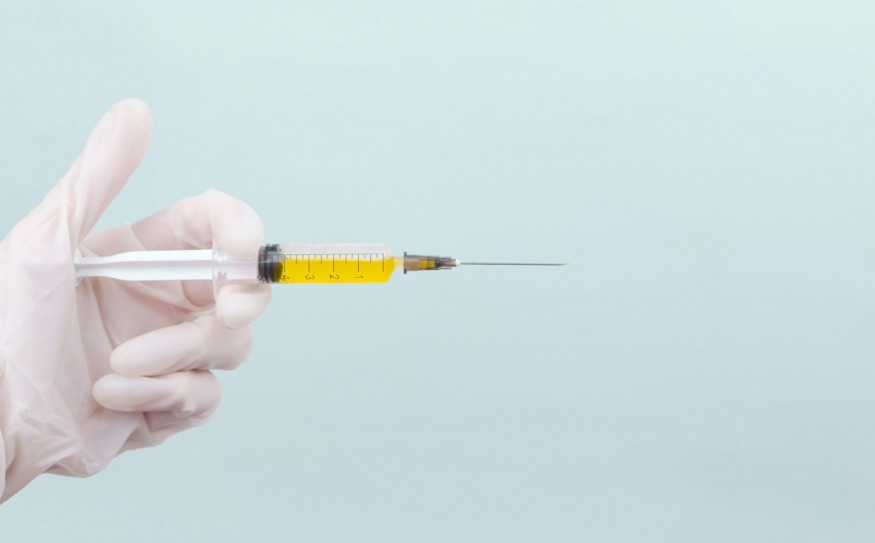
It can be tough to protect kids—from the bumps and scrapes they acquire through the rough and tumble of life, to the variety of illnesses and conditions they may develop over the years, protecting your loved ones can be tough.
Eczema, for example, is a condition that for many is unavoidable. With no known origin, its ability to cause pain and discomfort can be troubling, even for the most resilient parents. If you're currently involved in an FNP program or currently work in child health, then you know that eczema is not only quite common but often distressing for many young people.
In recent years, scientists and researchers have been researching ways to tame this challenging condition and improve the lives of sufferers worldwide. Could vaccines open the door to taming this dermal tyrant?
What is Eczema?
Eczema is a common type of chronic skin inflammation—often adversely affecting young people. It's estimated that as many as one in ten individuals will develop eczema at some point in their lifetime, which is usually widespread but rarely discussed.
Alternatively known as atopic dermatitis, eczema is defined by its impact on the skin. Symptoms differ from person to person but may include symptoms such as raw, sensitive, dry, or cracked skin and other dermal effects, such as rashes and itchiness. Eczema symptoms can often be fairly mild, until a flare-up occurs, in which case symptoms will worsen. If left untreated, eczema that has been scratched or itched may end up infected, which may result in permanent scarring on the skin if not managed appropriately.
Current treatments for eczema typically involve home remedies, or medicated creams such as moisturizers or corticosteroids. Often, these are used in consult with a doctor's visit, to identify which treatment may work best for a particular case of eczema.
Vaccinations — What Do They Do?
For many, vaccinations are often something that occurs in the background of life—as children, you may have received vaccinations for conditions such as measles, mumps, rubella, and polio, among others. How do vaccinations work, though?
To keep it simple, vaccines are a medical treatment that is designed to stimulate the immune response of a body. Introducing a modified version of a virus, which may include a modified version of a disease, presents no risk of giving the patient that particular condition, but will trigger an immune response in the patient, inoculating them from the risks of the condition they're being vaccinated against.
Think of vaccination as the body's version of a fire drill. Everyone comes out to prepare in controlled conditions, allowing for the building's occupants (the immune system) to get ready for when there's an actual fire.
Centuries of Saving Lives — From Pertussis to Polio
Vaccinations have a long and storied history of saving lives—however, they took more than a century to go from small-scale ideas to the broader global initiatives they are today. One pioneer of the vaccine movement includes English physician Edward Jenner, the first doctor to successfully innoculate someone from another disease (at the time, smallpox), in 1796.
Jenner's discovery led to the eventual widespread introduction of vaccinations across Europe and the United States throughout the 19th century. Some parts of Europe had eliminated smallpox by the turn of the 20th century, and by 1980, the world was considered free of smallpox.
Working with infectious diseases before the development of modern laboratories and conditions was often difficult and slow. It took more than a century for vaccination to develop vaccines for other illnesses, with the Spanish Flu pandemic of 1918–19 driving a rallying cry for change.
Two widely known vaccinations, developed in the 1930s and 1950s, respectively, include the vaccines for pertussis (also known as whooping cough) and polio. Both conditions had incredibly detrimental effects on children, with some modern sufferers of polio being reliant on costly treatments such as expensive ventilators or, in some cases, iron lungs.
Vaccines introduced for whooping cough and polio changed the lives of millions of children overnight. Whooping cough vaccines are highly effective, and the mass rollout of polio vaccinations has meant that some places, such as Australia, have been polio-free for many years (in Australia's case, nearly a quarter of a century).
In recent years, the rapid development and widespread dispersal of a coronavirus vaccine has helped to save an immense number of lives. Data published in 2024 estimated that vaccination against COVID-19 not only reduced the death rate by more than half but also saved around 1.4 million lives.

Targeted Vaccinations Hold Promise
Modern research into a potential vaccination of eczema is considered the cutting edge of what's possible. At Trinity College Dublin, a group of scientists has been exploring the use of vaccines tailored to a child's immune system to assist in the fight against eczema.
The research, conducted on 93 children up to the age of 16, explored the immune responses that a body puts out when dealing with eczema. Crucially, discoveries were made that identified how the body reacts to eczema caused by a common bacterium known as Staphylococcus aureus.
Researchers found that in the different groups of participants, the number of white blood cells that tackle infection varied significantly between groups that had staph-based eczema compared to those that did not.
Commenting on the research, Professor of Dermatology Alan Irvine noted that while it was well-known that there were interactions between staphylococcus and eczema, this research was cutting edge in that it helped to understand the immune response that occurs when children are afflicted by eczema. Releasing a statement with the release of the research, Professor Irvine noted, "Our work outlines new discoveries about how children with eczema respond immunologically to infection with this common bacterium."
Could We See a Future without Eczema?
With such a significant focus on the treatment and management of eczema, could we potentially see a future without this impactful condition? For many young people, eczema can be deeply uncomfortable, as well as physically painful. Research into the bacterial relationships that occur holds considerable promise—although while we may not necessarily see a vaccination tomorrow, we're at least seeing progress.
Perhaps one day, eczema will go the way of smallpox—and be an anecdote in a broadly inoculated world. One can only hope!
© 2025 NatureWorldNews.com All rights reserved. Do not reproduce without permission.





